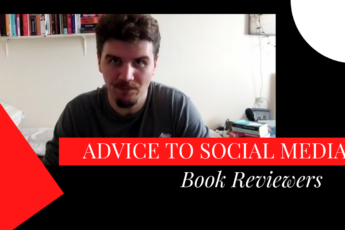The Importance of Research
After reading one too many poorly-researched articles online, I decided to offer a few tips relating to research skills…
Maybe it’s just my snobbery talking but I can’t bear to see an article in which the journalists don’t seem to know who’s who. I was reading an article about the actor Samuel West recently. If you’ve watched the remake of All Creatures Great and Small, you’ll know him well; he’s currently playing one of the leading protagonists. But on top of all that, he comes from a well-established acting family. Both of his parents, Timothy West and Prunella Scales, are acclaimed actors in their own respective rights. So it left me a bit miffed to find a picture of Samuel West next to Hollywood star Bill Murray with the caption Samuel West and his father, the actor Timothy West (or words to that effect). How unprofessional that looked. It made the rest of the article hardly worth the time to finish. And the writer looked a bit stupid for getting their facts wrong. How could this have been avoided? One word: research.
Whether it’s an in-depth novel or a 400-word article, research is the key component. Without it, the writing loses a lot of credibility. And, if it’s an article for a news website, the publication loses its credibility as well. So I have a couple of recommendations written out below for researching your creative pieces. And how you may apply that research to your work.
If you’d prefer, why not check out the YouTube video below:
READ NON-FICTION
First thing to say is — do NOT skim read a few Wikipedia articles and call it research. It’s a good starting point, but it only really scratches the surface. You need to invest in some materials that explore what you’re planning on writing in much greater detail. For example, with my latest work, You Can Hear Chopin from the Attic, I bought a book called High Society in the Third Reich, which I read from cover to cover. I’ll tell you what I did during that reading in a few sections’ time.
SPEAK TO PEOPLE
I know what some of you may be thinking — writing is a solitary art. Why on earth would you be expected to speak to people? Well, what better stories are there than those that come from people who were actually there? What I wouldn’t give to speak to someone who ran a hotel in Berlin during the war right now! Talking to people is also good for inspiring characters, plot points, or even brand-new stories. So, if you have interviewing skills, use them for research!
READ COMPARABLE FICTION
Comparable works are one of your greatest allies in the writing process. My advice: don’t just stick to works in your exact genre. Look for period… look for character point-of-view… Think about when it was written compared to when it’s set. And also who the author was.
HOW TO APPLY YOUR RESEARCH
While you’re reading or interviewing or whatever, I cannot emphasise the importance of WRITING STUFF DOWN enough. That’s exactly what I did when reading High Society in the Third Reich. I wrote a long list of points that I thought would apply to characters, to the plot and events, and to the setting. That’s what I advise you to do too. Write down a load of bullet points as you go, and then when you feel you’ve done justice to the research process, go through that list and inject the points into your story. You will have well-rounded, three-dimensional characters and settings and an engaging plot at the end of it!
For more author news and views, my Facebook and Instagram pages are here. And drop a subscription to my YouTube channel to remain informed of the latest, plus some exclusives. Furthermore, my fortnightly podcast, The Dale Hurst Writing Show, is available to listen to here on Spotify.




Leave a Comment